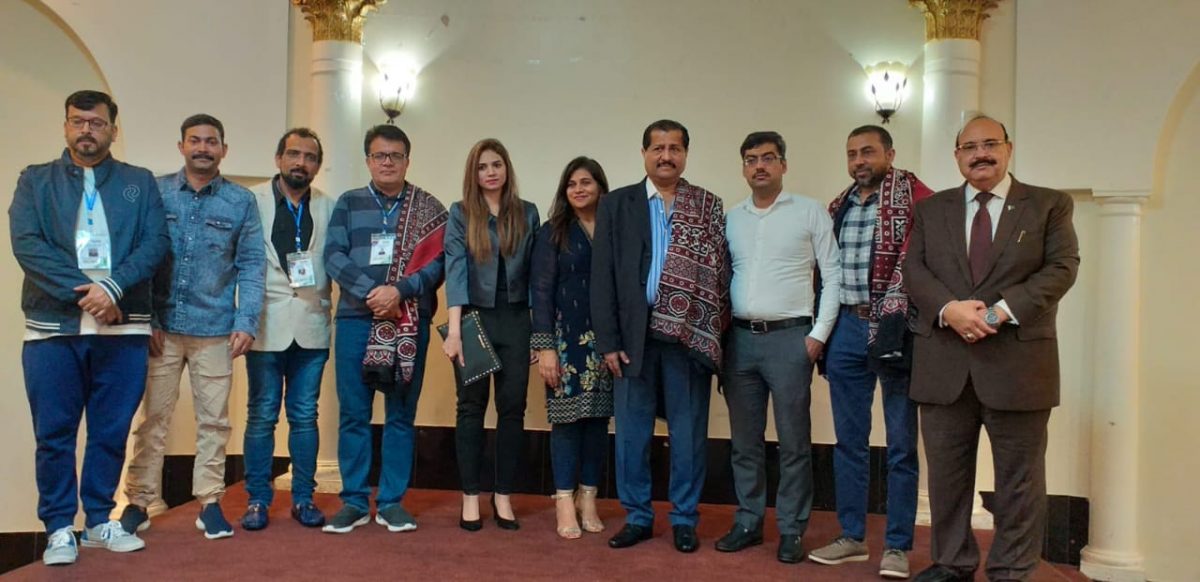Karachi – April 23, 2025: The Institute of Cost and Management Accountants of Pakistan (ICMA Pakistan) has released a comprehensive Policy Note titled “Should Pakistan Expand the Use of Solar Energy in Industries to Reduce Electricity Costs?” The study, prepared by ICMA’s Research and Publications Department, presents a strong case for accelerating industrial solarization in Pakistan as a solution to the country’s mounting energy crisis, high cost of electricity, and declining export competitiveness.
The Policy Note highlights that electricity tariffs for industries have surged by over 100% in the last four years, with an alarming 38% hike in FY2023 alone. Today, industrial consumers are burdened with power costs exceeding Rs. 54 per unit, while solar energy offers an alternative at only Rs. 18 to Rs. 20 per unit. These high costs are choking Pakistan’s manufacturing sector, especially critical industries such as textiles, cement, steel, and fertilizers, making it increasingly difficult to remain viable in global markets.
ICMA Pakistan has proposed a well-rounded and actionable policy framework consisting of 30 practical recommendations, designed to support and fast-track industrial solarization in Pakistan.
At the top of the agenda is the removal of import duties and taxes on solar equipment, including panels, inverters, batteries, and related components, to reduce the upfront cost of solar projects. Complementing this, ICMA recommends green financing schemes through banks and DFIs at concessional rates, along with prioritization of industrial solar projects under the State Bank’s refinancing facility with simplified procedures.
To ensure effective integration of solar energy into the national power grid, the Policy Note stresses the need to upgrade feeder-level and grid infrastructure and standardize net metering policies across all DISCOs for transparent and consistent implementation. In parallel, ICMA urges the government to introduce a national hybrid energy policy, allowing industries to use a combination of grid power, solar, and third-party sources.
To encourage investment, fiscal incentives such as tax credits, rebates, and depreciation allowances should be offered to industries that invest in solar systems. Moreover, the establishment of solar-ready industrial clusters within Special Economic Zones (SEZs) can promote shared infrastructure, reduce costs, and create energy-secure industrial environments.
A key priority is to support local manufacturing of solar equipment, reducing reliance on imports and creating domestic employment. To further ease the financial burden on industries, ICMA recommends promoting energy service companies (ESCOs) that install and manage solar systems under leasing or performance-based models.
In terms of policy innovation, the report calls for a clear legal framework for carbon trading and third-party energy sales, enabling industries to monetize surplus power or carbon credits. A centralized solar promotion cell under AEDB should be established to coordinate efforts and resolve regulatory hurdles.
Other regulatory reforms include simplification of licensing and approval processes, and the promotion of energy audits across industries to identify solar viability. Solar adoption should also be integrated into corporate ESG and CSR frameworks, with dedicated programs for technical training and human resource development in solar technologies.
ICMA proposes partnering with universities and technical institutes to create a skilled workforce. To build investor confidence, the launch of solar insurance products and the creation of an Industrial Solarization Fund are advised. The issuance of green bonds via capital markets could also unlock new financing avenues.
To encourage adoption, ICMA recommends revision of industrial electricity tariffs, introducing time-of-use incentives, and promoting energy storage solutions to ensure continuous power availability. It also proposes the development of net-zero industrial parks and making solar installations mandatory in new industrial buildings, supported by changes in building codes.
Idle rooftop space on industrial buildings should be optimized for solar power generation, and peer-to-peer (P2P) energy trading platforms using blockchain technology should be introduced for secure and efficient transactions. Additionally, subsidized financing for battery storage systems should be made available to complement solar installations.
Public awareness is also a priority, with a strong need for nationwide information campaigns to educate industry stakeholders on the benefits of solar energy. Finally, ICMA urges the government to set clear sector-wise solar adoption targets, aligned with national renewable energy goals to ensure sustained progress.
ICMA Pakistan firmly believes that the successful implementation of these measures will help lower the cost of doing business, enhance industrial productivity, promote environmental sustainability, and restore Pakistan’s export competitiveness.
















